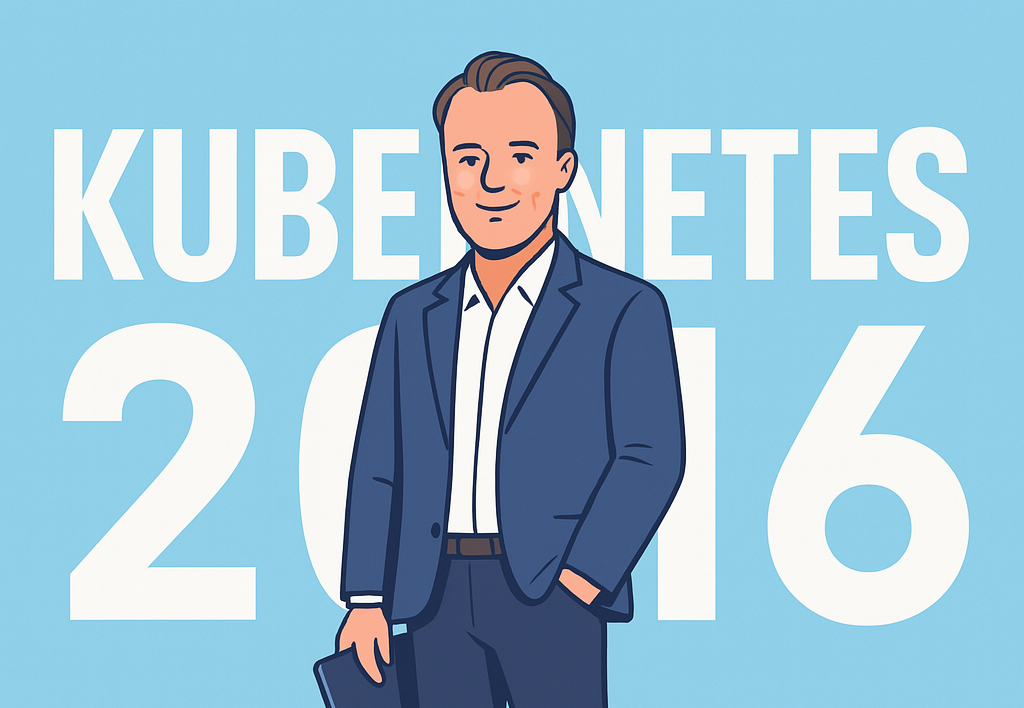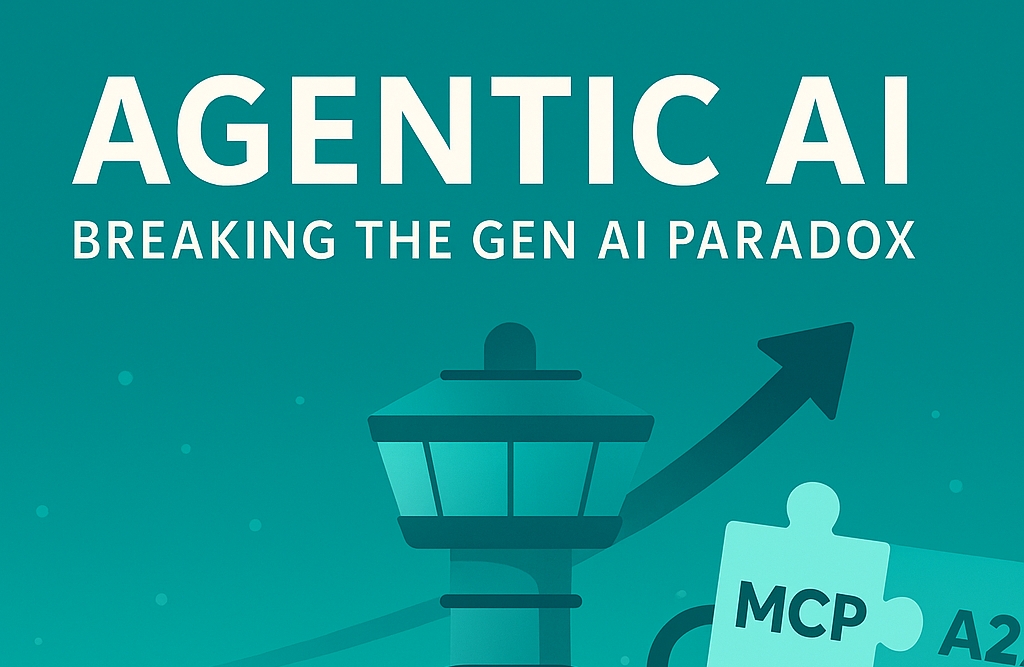Why Google's Agent-to-Agent Gift Feels Like Kubernetes All Over Again
Google's donation of the A2A protocol to the Linux Foundation mirrors what happened in 2015 with kubernetes. Patrick Gruhn was part of that wave with his previous company (exit to cisco), Replex.io, and now part of the next wave with palma.ai. This analysis explores how standardized AI protocol, will reshape enterprise AI infrastructure—and why having the right management layer matters now.

Why Google's Agent-to-Agent Gift Feels Like Kubernetes All Over Again
June 25 2025 • 8-minute read
"I've seen this movie before—and I know how it ends."
Last week Google handed its Agent2Agent (A2A) protocol to the Linux Foundation, and I felt the same electric jolt I did a decade ago when they open-sourced Kubernetes. Back then, container orchestration was a wild west of closed, incompatible systems. Today, enterprise AI is in the very same place—and Google just played the same trump card that reshaped cloud computing.
I've Watched This Playbook Succeed
In 2014 Docker turned application deployment upside down, but orchestration was chaos. Vendors hawked Swarm, Mesos, and a dozen proprietary "solutions," leaving CTOs to choose between lock-in and home-grown hacks.
Then Google surprised everyone: instead of guarding its internal Borg system, it gave Kubernetes to the world under neutral Linux Foundation stewardship. That single move didn't just create a standard; it ignited an ecosystem. Kubernetes now runs 71 percent of enterprise container workloads—and the economic impact is hard to overstate.
Google is repeating the trick with AI agent communication. If you run an enterprise stack, pay attention.
AI in 2025 Feels Exactly Like Containers in 2014
Walk into any large company and you'll see the fracture lines: sales uses one AI assistant, support another, finance yet another. They don't share context, and every integration leaves your IT team sweating.
One frustrated CTO told me, "We have five AI tools that might as well live on different planets." Google's answer is to open-source A2A under neutral governance. And it arrives alongside Anthropic's Model Context Protocol (MCP), the perfect complement.
MCP lets agents tap your corporate "brain"—databases, APIs, internal apps.
A2A teaches those agents to talk to each other about what they find.
Picture your support bot hitting a tricky technical issue. It pulls data via MCP, chats with your engineering bot over A2A, and together they fix and document the problem—without a human in the loop. That's not sci-fi; that's standardized AI done right.
Why Neutral Governance Matters
Google could have kept A2A for itself. By donating it to the Linux Foundation, it removed the one hurdle every enterprise leader dreads: vendor risk. Under neutral governance, the protocol survives leadership changes, product pivots, and balance-sheet drama.
The signal is loud. Microsoft has already pledged support, and the rest of the industry is lining up. Within 18 months, I expect A2A + MCP compatibility to become table stakes for enterprise AI vendors. Early adopters will build multi-agent workflows that make today's AI rollouts look quaint.
Standards Solve One Problem—Then Create Five More
Here's the part most pundits miss: a standard doesn't magically make production easy. Kubernetes unified orchestration, but it also birthed new headaches—security, observability, access control, painless upgrades.
A2A and MCP will do the same. When you're running twenty agents, each wired to sensitive data and chattering nonstop, how do you:
- enforce security and privacy policies?
- trace a failure across ten inter-agent hops?
- keep audit teams and regulators happy?
Those challenges will block real-world adoption unless we build the right management layer.
Why We Built palma.ai
We created palma.ai not to launch "yet another assistant," but to be the enterprise AI gateway that makes standards usable at scale:
Unified security
Every MCP call and A2A conversation flows through policy enforcement and audit trails.
Performance management
We route, throttle, and observe agent traffic so workflows stay fast and reliable.
Governance at scale
Departments get freedom; execs get compliance.
Future-proofing
New MCP servers or A2A endpoints plug into one console.
Open standards stay open; we simply give you the controls to run them safely.
Your Decision Window: 12-18 Months
The firms that toyed with Kubernetes in 2016 owned the cloud-native wave by 2019. The same clock just started for standardized AI. You don't need a production rollout tomorrow, but you do need a roadmap today.
Ask yourself:
- Are we experimenting with A2A and MCP now?
- Do we have a security and governance plan for multi-agent AI?
- Who inside our org owns this new layer of infrastructure?
Because the real question isn't whether you'll adopt standardized AI protocols—it's whether you'll have the infrastructure to out-execute competitors who are fumbling with basic implementations.
The Next Decade Starts Here
Kubernetes became the invisible plumbing of the cloud. A2A and MCP will become the invisible plumbing of enterprise intelligence—powering everything from customer service to finance to software delivery.
But technology alone won't win the day. The winners will be the companies that pair open protocols with rock-solid management, security, and governance.
Google just fired the starting gun. The revolution is underway.
Are you ready?
Don't wait for the standardized AI wave to pass you by. Connect with our team and start building your AI infrastructure advantage today.
Read More

The New Protocol Era: How MCP and Agent2Agent Are Following the Kubernetes Playbook
Google's donation of Agent2Agent to the Linux Foundation signals standardized AI agent communication. Discover how MCP and A2A protocols are creating the Kubernetes moment for enterprise AI.

Seizing the Agentic AI Advantage with MCP and A2A: The gen AI paradox
Discover how agentic AI breaks through the 'gen AI paradox' and why MCP and A2A protocols are critical for the enterprise transformation. Learn how Palma.ai creates the foundation for autonomous AI agents that drive real business impact.
Ready to Future-proof your AI Strategy?
Transform your business with secure, controlled AI integration
Connect your enterprise systems to AI assistants while maintaining complete control over data access and user permissions.